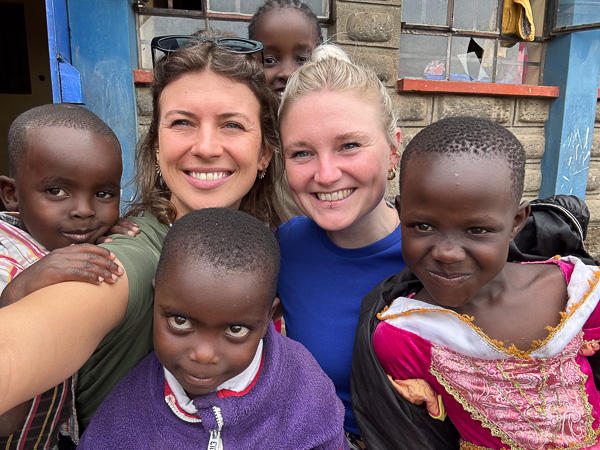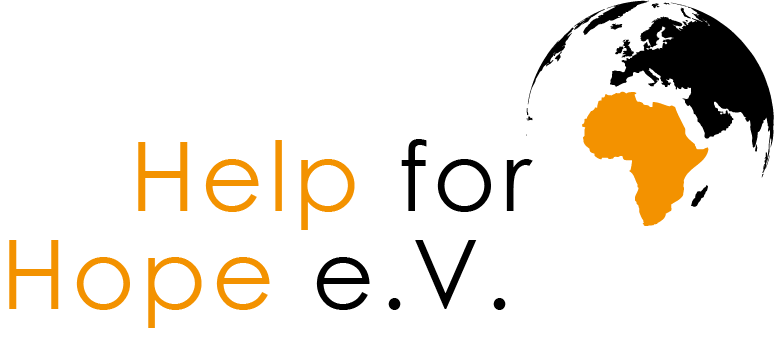Volunteering
We caught your attention and you wish to see the project through your own eyes?

You would like to travel to Kenya?
With the help of volunteers Hope Menorah Primary School has steadily grown over the past few years and is in great need of your support.
The school benefits from your ideas, your commitment in everyday school life and individual skills. Whatever you have to offer is needed. Contact us at any time and we will be happy to set you up!
What to expect
You can
You will
You have to
FAQ – Volunteering
Can I receive an internship certificate?
Do I need a visa?
For entry into Kenya, you only need an ETA (Electronic Travel Authorization), which you can apply for online. It costs $30 and takes about 3-5 days to process. You can find the link on the Foreign Office website::
ETA Kenia
What vaccinations do I need?
What costs should I expect?
For your stay, we charge 16-17€ per day (depending on exchange rate fluctuations). This also includes dinner with your host family.
You will also pay 3-5€ per week for a cleaner. If you want, they can also wash your clothes.
The costs for food, transportation, and excursions vary depending on your preferences.
Do I need my own international health insurance?
What clothing should I wear in Kenya?
In general, you need to get a feel for what clothing you find appropriate and comfortable.
Nakuru is not a tourist spot. Especially in the slum area, you will stand out because of your skin color. We recommend loose and not too tight clothing.
To respect the strictly Christian religion of the Kenyans, you should leave tight tops and hot pants at home. 🙂
Not all roads are paved, and especially during dry seasons, the area is very dusty. Be prepared for your clothes to get dirty and look forward to your shower at the end of the day. 🙂
How do I wash my clothes?
There are usually no washing machines here. In Kenya, washing is done by hand. A cleaner comes by once a week. Washing your clothes is included in the 3-5€ price. Only your underwear must be washed by yourself.
How do I ensure my stay in Kenya is safe?
With these rules of conduct, we have always felt very safe here:
- Avoid side streets
- No walks in the dark
- Use the same drivers (we are happy to provide our contacts)
- Travel in the slum only with Kenyan accompaniment
- Appropriate clothing
- Polite greetings on the streets, but also directly showing our boundaries in case of uncomfortable contact
- Careful handling of valuables
What adapters do I need?
Do I have internet in Kenya?
It’s best to buy a Kenyan SIM card from Airtel or Safaricom directly at the airport. 5 GB of mobile data and calls are available from 5€. Your host family will have Wi-Fi.
What payment options are available?
Credit card payments are rarely possible here. You can easily get cash at many available ATMs both at the airport and in Nakuru.
If you have a Safaricom SIM card, you can use the MPesa app. It works similarly to PayPal.
How do I get from the airport to Nakuru?
The transport from Nairobi airport to Nakuru takes at least 4 hours. Depending on the condition of the only connecting road, it may take longer.
We are happy to organize airport pick-up for you. Our trusted drivers charge a fair price of 9,000 KSH ≈ 60€, depending on the exchange rate, and appreciate a small tip./p>
How do I get around Nakuru?
- Motorcycle taxis are on every street corner and take you directly to your destination within Nakuru for about 1.50€ per ride. We recommend using them as your main mode of transport and sticking to our contacts. Our trusted drivers will always know where you are, providing you with additional safety.
- Tuk Tuks are small three-wheeled vehicles usually preferred when you have a lot to transport.
- Matatus operate like our buses on fixed routes but without stops.
- Wasili is an app (like Uber) where you can order a car for your transport to your location. Especially at night or for longer distances, Wasili is the only option to get around.
Prices for Tuk Tuks, Matatus, and Wasilis vary depending on the distance. It’s best to ask your host family or the school team about the prices.
What will my daily life as a volunteer be like?
Additionally, you help with meal distribution at lunchtime.
Depending on your preferences, you can also assist in the kitchen preparing lunch or support the janitor with manual tasks.
There are also large shopping trips, errands, and events at irregular intervals where you can always get involved.
The Hope Menorah Primary School is also open on Saturdays to ensure the children have regular meals. Various activities take place at the school on these days. It’s up to you whether you want to help on these days. On these days, you could also meet our older, former students who still keep in touch with us.
We always appreciate photo and video material that we can use for our Instagram account.
Home visits
The Kenyan team recommends you join them on home visits to get a complete picture of the necessity of our project and the living conditions of our children’s families.
How long should I plan for volunteer work?
After consultation, you can stay with the project in Kenya as long as you like.
The team in Kenya and we at Help for Hope e.V. are grateful for every single day you take the time for us. 🙂
How do I live? - Life with the host family
Usually, the family has breakfast and dinner together. The Kenyans are happy to cook their traditional dishes with you but are also open to western dishes you can show them. Special dietary requirements are possible and can be discussed with your host family.
You will have your own space with a bed with a mosquito net and enough storage.
Should I bring gifts for the host family?
The family will appreciate small gifts. In Kenya, it is cultural to bring a small gift when „visiting“.
Will I have electricity and hot water?
Power outages occur from time to time in Nakuru. The families are prepared with small battery-powered lamps and candles. Cooking is done with gas, but you may temporarily be without hot water.
Where do I shop?
You can buy fresh vegetables, fruit, meat, and fish at the street stalls near your house. There are also small shops for everyday items.
At the Westside Mall in the city, you will find some western products (pasta, Barilla sauce, cheese, etc.).
The hotel restaurants also offer a change from traditional Kenyan dishes.
You can find souvenirs on Kenyatta Avenue at the Maasai Market.
What excursions can I take during my stay?
There are several hotels with pools in Nakuru where you can spend your free days.
In and around Nakuru, you can visit::
- Nakuru National Park including Lake Nakuru (where you have the chance to see rhinos and many other animals)
- Menengai Crater
- Menengai Caves
- Thomsons Falls (waterfalls)
- Hells Gate (small national park)
- Lake Naivasha (hippo boat tour)
Our heartfelt recommendation is a safari in the Masai Mara National Park with overnight stays at Fisi Camp.
We are happy to help you organize your excursions!
If you have any questions, please feel free to contact us!
We use your data exclusively in accordance with our privacy policy.


